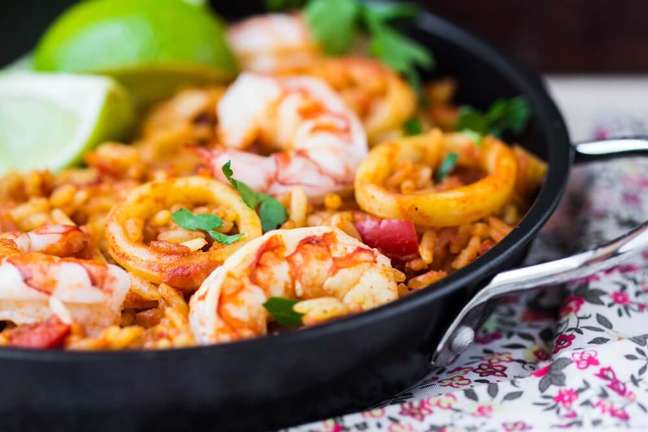The consumption of shrimp and other seafood will depend on the pregnant woman’s history with this type of food and how she intends to eat it. In general, since it is difficult for the doctor to know where and how the pregnant woman will ingest them, it is better to avoid them due to their high allergenic potential (especially shrimps and crabs) and also due to the risk of contamination by bacteria and other pathological agents, which can be dangerous to the baby. But the truth is that, if well cooked and prepared in environments that value hygiene and ingredients of good origin, the risks are significantly reduced and some doctors allow its consumption for pregnant women.

Risk of bacterial contamination
The main danger of pregnant women who eat shrimp and other seafood is to be poisoned by bacteria, such as salmonella. The infection caused by this microorganism causes vomiting, diarrhea, fever, pain in the abdomen and a lot of discomfort. In addition to dehydration, there is a risk of the bacteria getting into the blood and crossing the placenta to the baby.
Therefore, if you intend to consume it, do not eat it raw or undercooked. The shells of shrimp, crab and lobster turn red when cooked through. Oysters and shellfish open their shells (do not eat closed ones).
It should be stressed that fish is not the only or the main source of contamination. Salmonella is most commonly found in undercooked eggs, potato salads, undercooked meats, milk, and even some vegetables. Therefore, cooking and hygiene are key – freezing also helps eliminate parasites. Cheese, milk and yoghurt must be pasteurized. And cross-handling should be avoided: don’t use the cutting board to slice other foods.
Another possible problem with shellfish is that they contain a large dose of mercury, which can harm the baby if ingested in large quantities, affecting the cognitive and motor systems.
Increased sensitivity and allergies
And there is still the risk of allergy. Even if the woman has never had an allergic reaction, pregnancy changes a number of mechanisms, leaving the body more sensitive and with a lower immune response. Therefore, food allergies are not uncommon, and most allergy medications are off-limits during pregnancy. When you eat seafood, watch out for redness, peeling, and itchy skin reactions. When in doubt whether to eat or not, always talk to your doctor.
It’s still:
Want to know more? Subscribe to the newsletter Baby Home and get more tips each week on how your baby is developing. It’s fast and free.
+The best content in your email for free. Choose your favorite Terra newsletter. Click here!
Source: Terra
Ben Stock is a lifestyle journalist and author at Gossipify. He writes about topics such as health, wellness, travel, food and home decor. He provides practical advice and inspiration to improve well-being, keeps readers up to date with latest lifestyle news and trends, known for his engaging writing style, in-depth analysis and unique perspectives.






